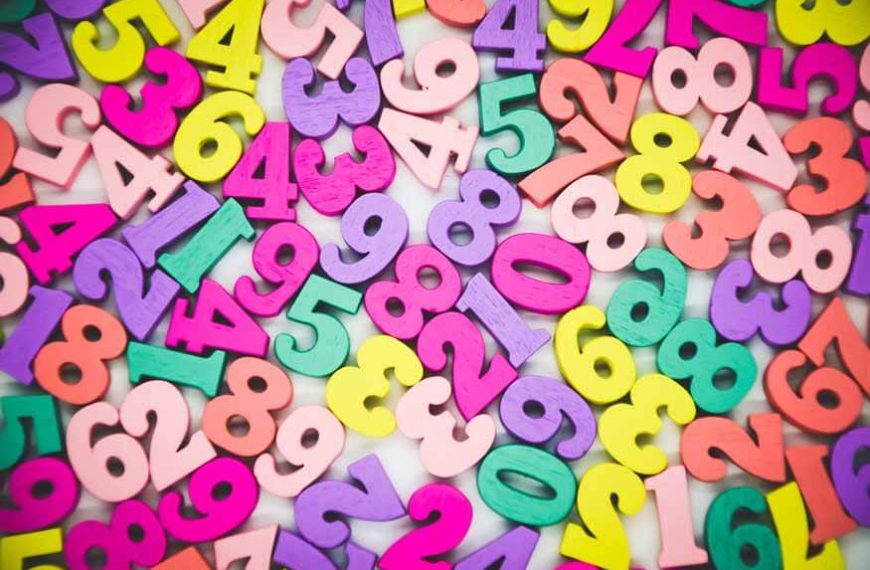Fun fact: Did you know that the ancient Greeks used to think of numbers as having personalities?
Prime numbers were thought of as ‘lonely,’ as they only had themselves and one as divisors. On the other hand, composite numbers, having more divisors, were considered ‘sociable.’ Let’s dive into the world of these ‘sociable’ numbers!
So, what is a composite number?
We’ll go into the fascinating subject of composite numbers today, discussing their meaning, offering a thorough inventory, offering instances, and even determining which composite number is the lowest. So, let’s embark on this numerical journey and unravel the mysteries of composite numbers!
Understanding Composite Numbers:
Prime numbers and composite numbers are the two main groups of numbers in the enormous universe of integers. Composite numbers are important in the field of mathematics, even though prime numbers garner much of the attention due to their exceptional indivisibility.
What is a composite number?
A positive integer larger than one with more than two different positive divisors is called a composite number. To put it another way, it’s a number that, aside from
1, can be split equally by at least one other number. This fundamental definition sets composite numbers apart from prime numbers, which can only be divided by 1 and themselves without leaving a remainder.
Examples of composite numbers:
To understand this concept better, let’s explore some examples of composite numbers:
4: It can be divided by 1, 2, and 4. Since it has divisors other than 1 and itself, 4 is a composite number.
6: Divisible by 1, 2, 3, and 6, 6 is a clear example of a composite number.
9: With divisors 1, 3, and 9, 9 fits the composite number criteria.
15: This number can be divided by 1, 3, 5, and 15, making it a composite number.
25: While it may seem prime at first glance, 25 is divisible by 1, 5, and 25, making it composite.
Now that we’ve seen some examples, let’s dive deeper into the fascinating world of composite numbers.
What is the smallest composite number?
To find the smallest composite number, we need to examine integers greater than 1 systematically. The smallest composite number is, in fact, 4. It’s the first positive integer that is not a prime number since it can be evenly divided by 1, 2, and 4. While prime numbers are all about being indivisible except by 1 and themselves, 4 breaks this rule by having additional divisors, thus earning its status as the smallest composite number.
Composite numbers list:
Creating a comprehensive composite numbers list is quite an ambitious task, as there are infinitely many of them. However, we can provide a starter list of some common composite numbers:
4
6
8
9
10
12
14
15
16
18
20
21
22
24
25
This is just a glimpse of composite numbers, and the list goes on indefinitely. You can find composite numbers of any magnitude by examining numbers greater than 1 and identifying those that have divisors beyond 1 and themselves.
Properties of Composite Numbers:
Composite numbers exhibit several interesting properties that make them valuable in various mathematical contexts:
Multiple Factors: Composite numbers have multiple factors, making them suitable for problems related to multiplication and division.
Relatively Prime: They are rarely relatively prime to other numbers, meaning they share common factors with many integers.
Not Primes: By definition, composite numbers are not prime numbers, which means they are divisible by more than just 1 and themselves.
Fundamental Role: Composite numbers are essential in number theory, cryptography, and various mathematical algorithms.
Applications of Composite Numbers:
Composite numbers are not just theoretical concepts; they have practical applications in real life. Here are a few examples:
Cryptographic Algorithms: In the field of computer science and cryptography, composite numbers are vital for encryption and decryption processes. Cryptographic systems often use large composite numbers to enhance security.
Prime Factorization: The study of composite numbers is essential for prime factorization, a fundamental concept in number theory. Prime factorization plays a crucial role in various mathematical algorithms and computer science applications.
Public Key Cryptography: Many encryption algorithms, such as RSA (Rivest–Shamir–Adleman), rely on the difficulty of factoring large composite numbers into their prime components. This forms the basis of secure communication over the internet.
Divisibility Rules: Understanding composite numbers helps in developing rules for divisibility. These rules are handy in everyday calculations and problem-solving.
The Beauty of Mathematical Patterns in Composite Numbers:
One of the most intriguing aspects of composite numbers lies in the patterns they create within the world of mathematics. These patterns can reveal astonishing insights into the nature of numbers. For example, you may notice that composite numbers tend to have more divisors than prime numbers, showcasing the diversity of mathematical relationships.
Moreover, composite numbers can be used to explore concepts like factorization, where you break down a composite number into its prime components, uncovering the unique set of primes that compose it. This process is not only intellectually stimulating but also fundamental in solving complex mathematical problems.
Delving into these patterns and relationships within composite numbers can be a rewarding journey for maths enthusiasts and scholars alike, shedding light on the intricate beauty that underlies the realm of mathematics.
In conclusion, composite numbers are a captivating aspect of number theory. They are the numbers that break the mould of primes by having divisors beyond 1 and themselves. The smallest composite number is 4, and they come in an infinite variety, forming a fundamental part of mathematics.
Whether you’re a maths enthusiast or just curious about the intricacies of numbers, composite numbers offer a rich landscape for exploration. From their role in cryptography to their significance in number theory, composite numbers are essential to many aspects of our modern world.
Speaking of modern times and the value of early education, allow us to present to you EuroKids, a renowned chain of preschools dedicated to developing young brains. Children can study in a lively and stimulating atmosphere at EuroKids, which lays a solid foundation for their future success. Thus, if you’re a parent searching for a top-notch early education programme, think about EuroKids as your child’s future bright spot!
In our journey through numbers and mathematics, let’s not forget the importance of nurturing the young minds that will shape our world tomorrow. EuroKids is here to support parents in providing the best start in education for their children. Explore the EuroKids website today and embark on an educational journey that will prepare your child for a lifetime of learning and success.















